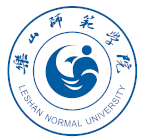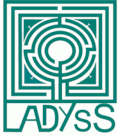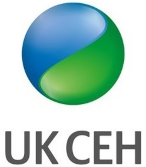Home > News > Meeting "Echinococcus multilocularis range expansion in Europe"
Meeting "Echinococcus multilocularis range expansion in Europe"
July 1, 2016
Organised by Dr. Alessandro Massolo after his sabbatical at the Chrono-environment lab, the first meeting of an informal steering group on the study of the Ecology of Echinococcus multilocularis in Europe was carried out in Besancon (France), on July 1, 2016, with GDRI EHEDE’s support,
During the meeting, the main knowledge gaps on the ecology of the parasite were discussed with particular emphasis on the relevance of these gaps from a risk management and from a research point of view as highlighted by a previous EU project (ECHINORISK) and by the recent EFSA report (2016).

The group has discussed the research questions and the methodologies that were presented. In particular, the group has agreed in trying to develop a project on European scale targeting the following questions:
- how scales combined to explain factors affecting the expansion and heterogeneity of E. multilocularis, particularly at the edge of the parasite distribution in Europe? This should be addressed by developing a multi-scale study on the ecology of hosts and parasite transmission along 3-4 areas which show clear gradients of parasite presence from high endemicity to ‘absence’ (undetectability)
- how can the dynamics of expansion of this range be explored retrospectively? This should be approached by investigating the use of state-of-the-art molecular tools and data analysis methodologies.
 Dr. Massolo and Dr. Valot will be in charge to further develop these ideas into preliminary projects and will come back to the group for starting a more detailed discussion within specialized groups (ecology and molecular, respectively).
Dr. Massolo and Dr. Valot will be in charge to further develop these ideas into preliminary projects and will come back to the group for starting a more detailed discussion within specialized groups (ecology and molecular, respectively).
List of participants:
- Franck Boué and Gerald Umhang, ANSES, FR
- Benoit Combes and Vincent Raton, ELIZ, FR
- Patrick Giraudoux, Jenny Knapp, Francis Raoul, Bénédicte Rognon and Benoit Valot, Chrono-environment, University of Bourgogne Franche-Comté/CNRS, FR
- Riccardo Orusa, Istituto Zooprofilattico Sperimentale · Aosta Valley and National Lab Reference Wildlife Diseases · wildlife diseases, IT
- Thomas Romig and Marion Wassermann, Parasitology dept, Hohenheim Unniversity, DE
- Alessandro Massolo. WEASEL, University of Calgary, CA
Contact:
Alessandro Massolo, University of Calgary
See also:









